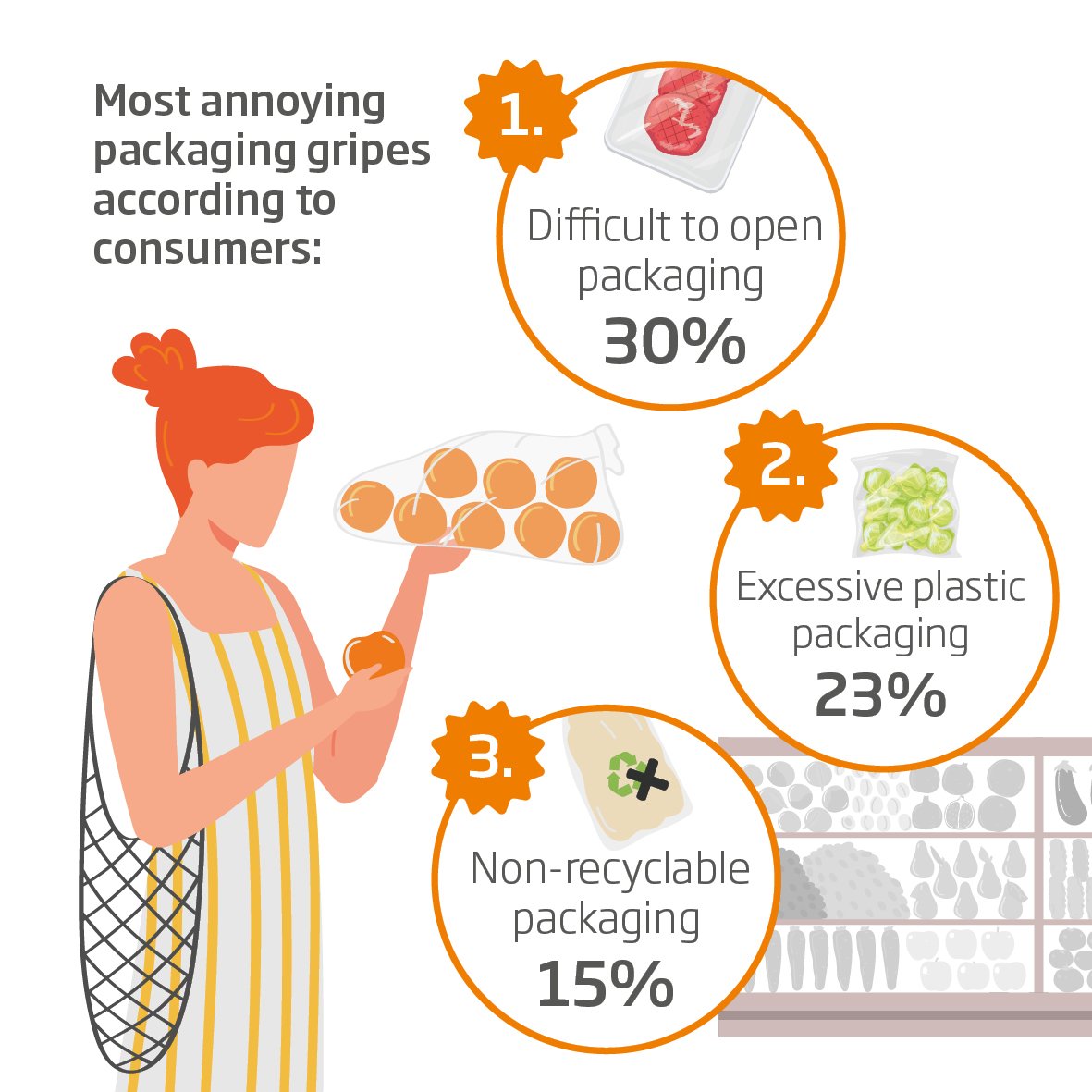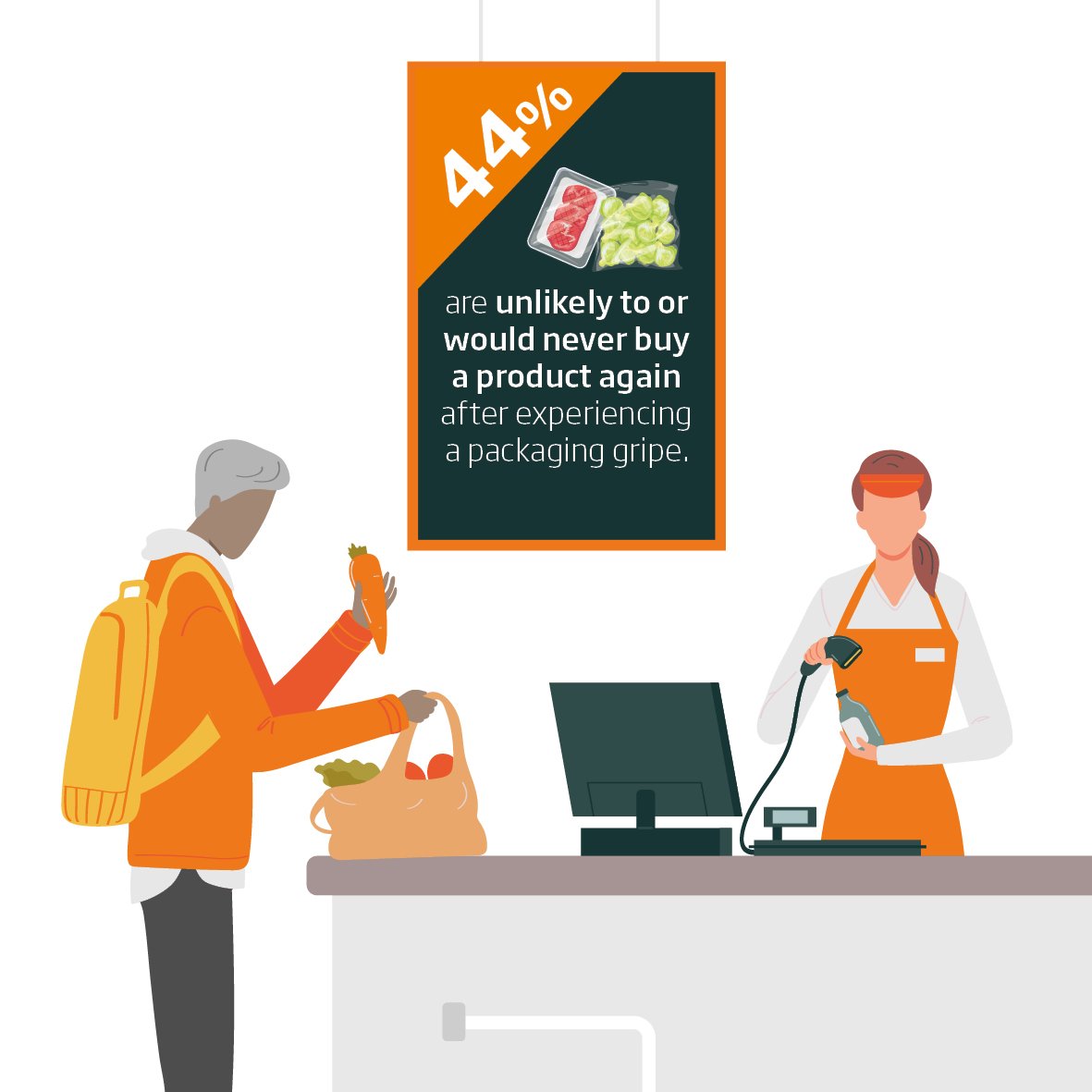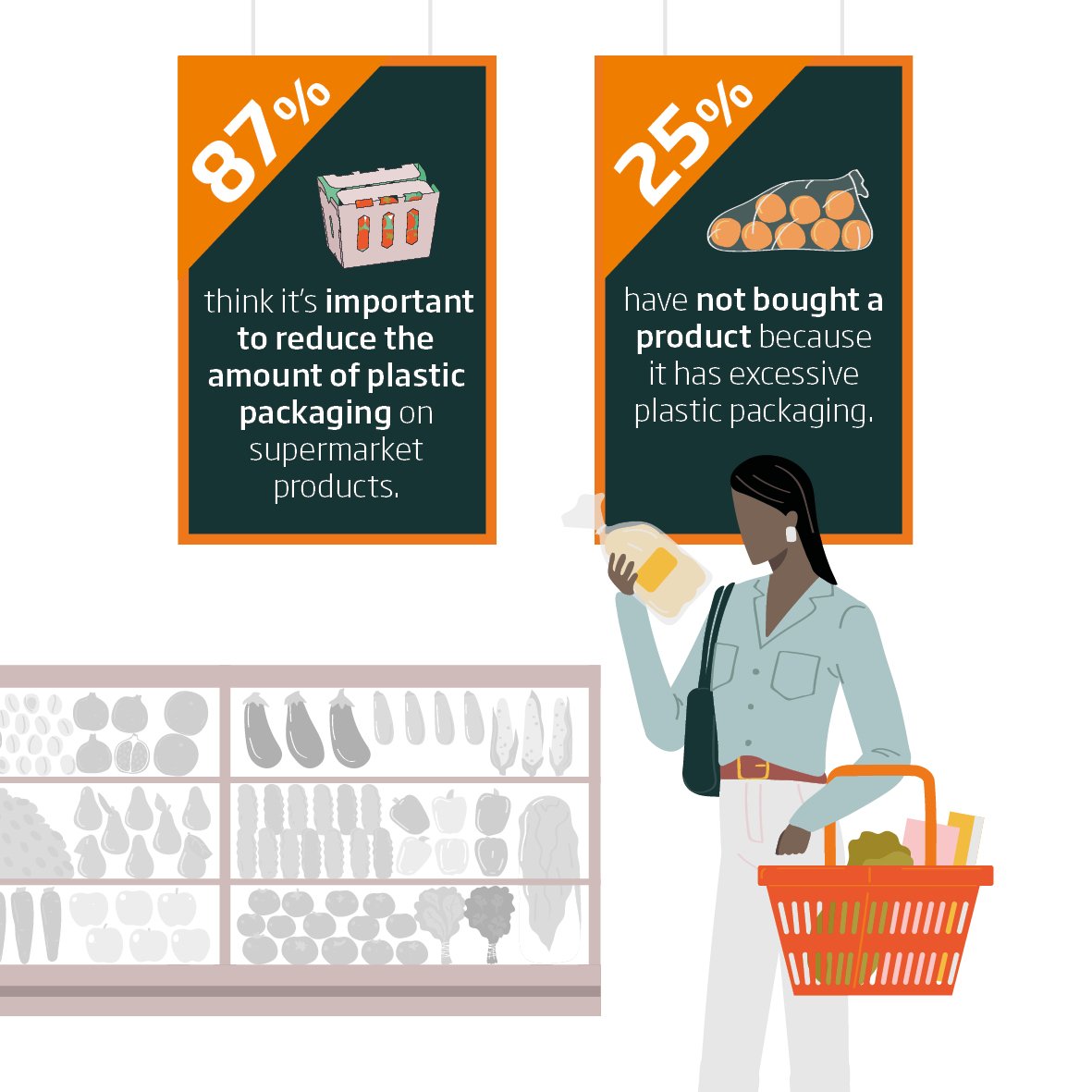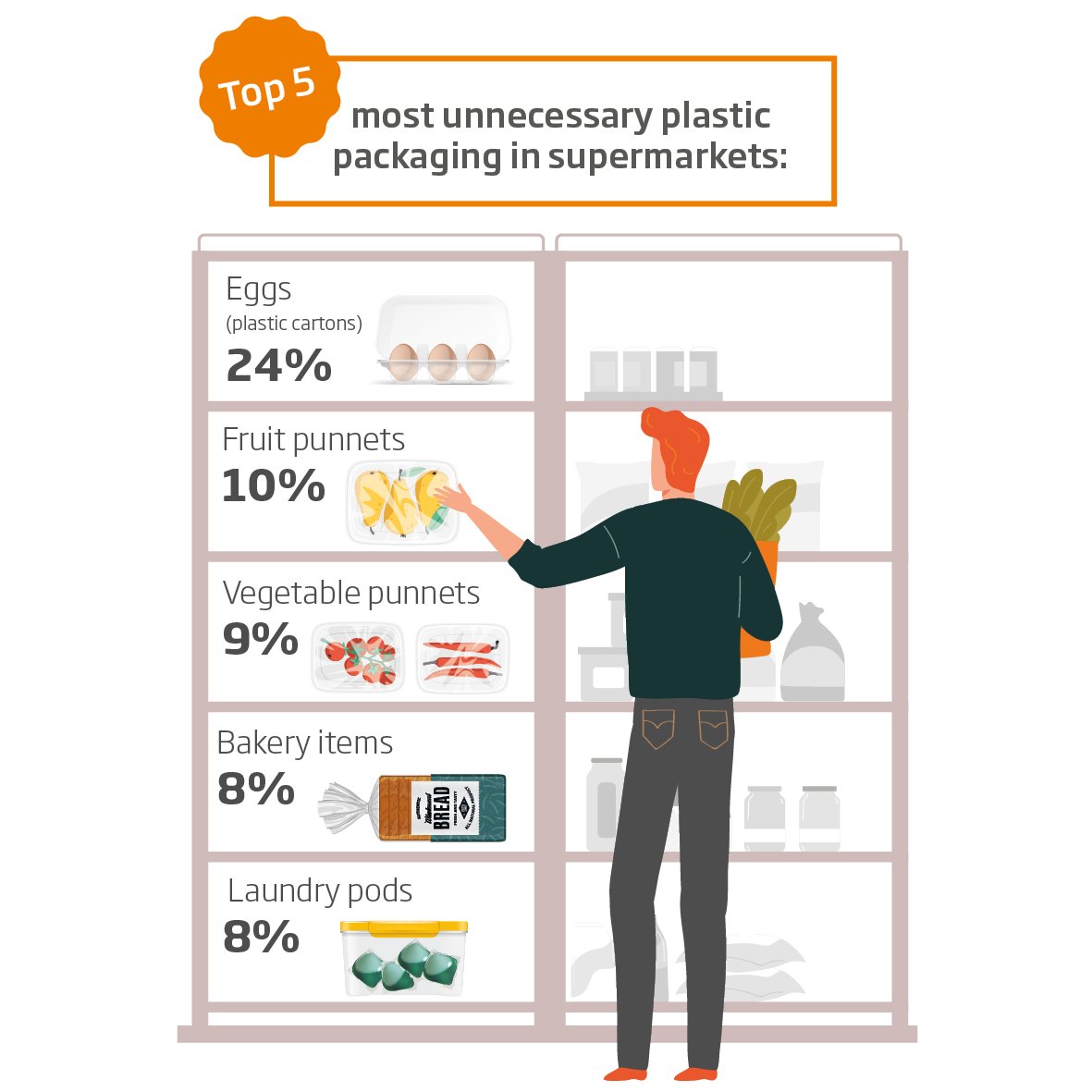Plast-icks: Brits Supermarket Packaging Pet Peeves Revealed
Our new research reveals Brits' biggest supermarket packaging gripes, including products wrapped in excessive plastic and packaging that isn't recyclable.

Nearly a third of people (30%) feel frustrated by the excessive use of plastic packaging for fruits and vegetables, and 25% have admitted to forgoing a purchase because of excessive wrapping. Additionally, over a quarter (28%) find it irritating when products are non-recyclable.

Some specific grievances include unnecessary layers of wrapping and deceptive "easy peel" corners, resulting in 44% of respondents being considerably less likely, or never likely, to make the same purchase again.

Moreover, 21% of participants have encountered ambiguous recycling instructions on product packaging, leading a third to dispose of the item in general waste and 32% to haphazardly place it in the recycling bin.
Almost a quarter were irritated most by excessive plastics – with two such annoyances encountered every week – with half feeling guilty if something is packaged excessively in any plastics.
Packaging is there to look after what’s inside. No-one wants to be left thwarted, unable to get at it. And clearly some of the wider gripes crop up when it feels like there is excessive plastic in play, and if packaging doesn’t appear to be readily recyclable.
Those are all things that can often be remedied – waste can be designed out from the start, and paper-based materials can be much more readily recyclable.
It's heartening to see that over one-third of shoppers are concerned about excessive plastic use in packaging and are prioritising it over other factors when making supermarket purchases.
When it comes to buying fruit, 17% are open to using paper bags – and only 5% were comfortable with plastic punnets.
In fact, 24% of consumers are willing to pay up to 33p more for an item with environmentally friendly packaging, demonstrating a strong demand for sustainable solutions.
Top 10 packaging irritations according to Brits:
- Meat packaging that has a corner to peel – but is impossible to peel open
- When a pull on a tin comes off and you can’t open it
- When you can’t open something without scissors or a knife
- When fruit or vegetables are packaged in loads of plastic
- When packaging is not recyclable
- When packaging makes the product look much bigger than it is
- When items are overpackaged in unnecessary layers
- When packaging is difficult to recycle
- Items that aren’t resealable
- When you can’t see the product inside

We have already surpassed our goal of replacing over 1.2 billion plastic items, 16 months ahead of schedule. This achievement has led to the replacement of everyday plastic items from supermarket shelves, such as fruit and vegetable punnets, plastic carriers, and shrink-wrap.
We believe that replacing problem plastics in packaging with completely renewable fibre-based materials is the sustainable alternative consumers are both demanding and actively seeking out.
A lot has changed in the last few years and there is a lot less plastic in supermarkets these days. Evidently there is still plenty of opportunity for brands to keep finding ways to reduce and replace plastic.
Methodology: Research commissioned in August 2024 by DS Smith. A nationally representative survey of 2,000 people in the UK was undertaken by OnePoll.